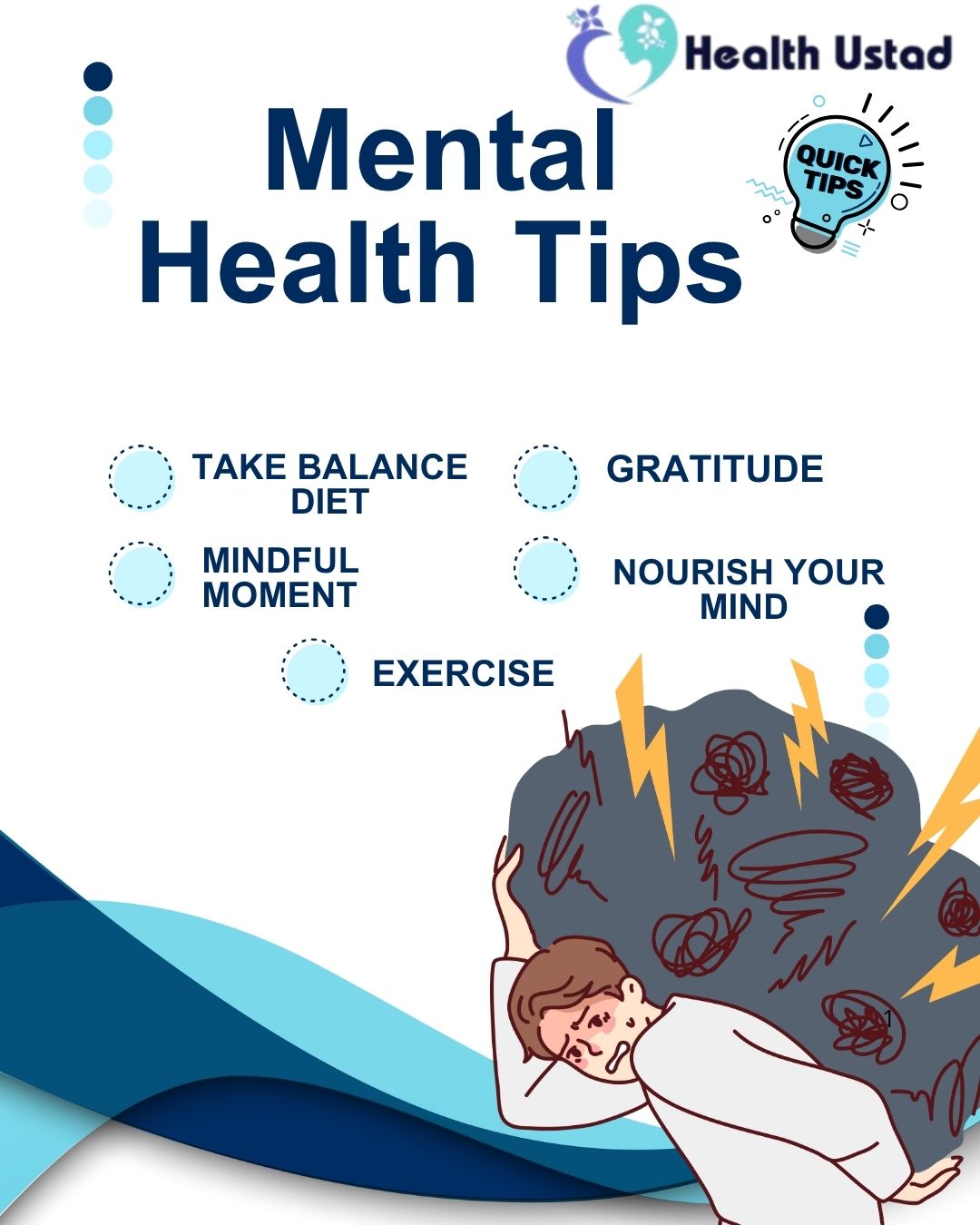Psychological Disorders

Understanding Mental Health
Understanding Psychological Disorders and the Power of Mental Health Tips
Psychological disorders are becoming more common in today’s fast-paced world. These psychological disorders are affecting millions of people around the world. Some common psychological disorders found are Anxiety, depression, bipolar disorder, and obsessive-compulsive disorder. These disorders can all make it hard for a person to live their everyday life. The good news is that you can improve your mental health and deal with emotional problems better if you follow the right mental health tips, take care of yourself, and make changes to your lifestyle.
What are Psychological Disorders?
Psychological disorders are disorders that change how you think, perceive, feel, and act. Suffering from psychological disorders can make your life harder, your relationships worse, and also affect your work productivity. Your mental health includes your emotional, psychological, and social well-being. If any of these areas in your life are out of balance, it can cause mental or emotional problems.
People with diagnosed psychological disorders have to consult a psychologist or psychiatrist. These mental health experts will treat you with practical mental health tips and techniques to build resilience and help you heal. These regular habits are suitable for both your physical health and mental health. Mental health tips provided by mental health experts will help you to deal with stress and live a more balanced life.
What is the Relationship Between Your Physical Health and Mental Health?
Your physical and mental health are both interconnected. Here we will tell you how your mental health is affected by your physical health. If you do exercise, it releases endorphins, which are brain chemicals that make you feel good and relaxed. This endorphin can help with Anxiety and depression. Regular exercise, like walking, yoga, or dancing, keeps you fit and enables you to deal with feelings of sadness and depression.
What you are eating also has a significant impact on your physical and mental health. If you are eating a balanced diet, you will feel more stable. Balance diet will help you to balancing your hormones through diet will help to stay focused, have energy, and control your mood. Eating foods that are high in omega-3 fatty acids, antioxidants, and vitamins can improve your mental and physical health.
How to Deal with Stress and Negative Thoughts?
Stress is a regular part of life. When stress lasts for a long time, it can cause psychological disorders. It is essential for mental health to learn how to control stress. The automatic negative thoughts worksheet and mindfulness are good ways to reduce your negative thoughts and stress. Some methods can help you reduce your stress, including:
- Meditation
- Breathing exercises
- Writing in a journal
These methods are all good ways to reduce your stress and negative thoughts.
Being grateful is also a good way for you to deal with stress. If you write down or think about what you’re thankful for every day, it will help you to change how you feel about being positive. Behaviors of gratitude change the way the brain works so that it sees good things more clearly, which makes it easier to handle life’s problems calmly and clearly.
Strengthen Your Mind with Mental Health Tips:
Psychological research shows that doing hard and new tasks is suitable for your mental health. If you are performing better, it can boost your confidence and cognitive functioning as well. You can understand it better by learning a new language, activity, or trying out a musical instrument. These things not only keep you busy but also give your life meaning and direction.
Doing things you enjoy helps you with feelings of despair and Anxiety. There are natural ways to let out sad feelings, which can lead to times of happiness and satisfaction. These small steps, when combined with exercise and a healthy diet, can help improve mental health.
How does Emotional Support help in Psychological Disorders?
Connecting with other people is very important for better mental health. For someone with a mental illness, getting emotional support from friends, family, or people in their community can be helpful. Talking to someone you trust about how you feel can help you relax and see things from a different angle.
It’s also essential to find a good balance between spending time with others and spending time alone. Connecting with others can make you feel better, but taking time for yourself can help you get your emotional energy back.
Decreasing the effects of social media:
Social media has a significant effect on mental health in today’s digital world. It can be a great way to connect with others and learn, but using it too much can make you feel like you’re not good enough. Using social media can cause you to compare yourself to others. Limiting your time on screens and only reading positive and educational articles in your feed could help keep your mental and physical health from getting stressed.
Don’t just keep scrolling; instead, go outside, talk to people, or do something you enjoy. One of the most important but often ignored mental health tips is to find a balance between online and offline activities, especially for young people who are dealing with current issues.
50%
It's essential to recognize the signs of psychological disorders. Being aware of these symptoms can help you or someone you care about get the necessary assistance.
50%
Look for indicators like changes in mood, behavior, or energy levels. These changes could point to underlying mental health issues that may need attention.
